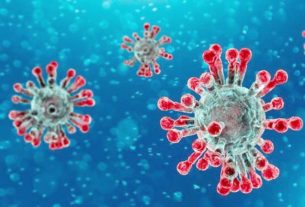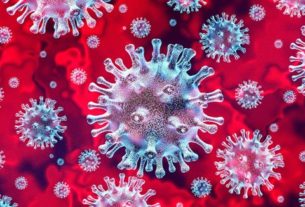From Our Bureau
18TH JUNE 2020
The Corona Virus (COVID-19) pandemic situation remained grim globally, with the confirmed cases across the world soaring to 82,42.999 and the death toll reaching 4,45,535 in the 216 affected countries and territories, according to the latest update from the World Health Organization (WHO).
Globally, American region continued to be the worst-hit with 40,15,386 confirmed cases and 2,08,991 deaths. Europe came next with 24,71,792 confirmed cases and 1,90,304 deaths. Eastern Mediterranean region reported 8,37,497 confirmed cases and 18,575 deaths.
South-East Asia region’s tally stood at 5,21,582 confirmed cases and 15,921 deaths. Western Pacific region recorded 2,01,462 confirmed cases and 7,249 deaths and African region registered 1,94,539 confirmed cases and 4,482 deaths. WHO Risk Assessment at global level remained very high.
The investigation of a cluster of COVID-19 cases in Beijing associated with a wholesale market continues. As of 18th June, Chinese authorities have reported a total of 172 cases since 11 June, including 158 in Beijing, 10 linked cases in Hebei Province, two in Liaoning Province, one each in Sichuan Province and Zhejiang Province.
Three genetic sequences related to Xinfadi cluster have been uploaded to the GISAID database. WHO is closely monitoring the situation and is in close contact with national authorities in China.
Chile has reported 36,179 cases in last 24 hours. Of these 36,179 cases, 4,757 correspond to new cases and the remaining 31,422 cases were added by the national authorities following data reconciliation activity. WHO is closely monitoring the situation and is in close contact with the national authorities.
Subject in Focus:
Advice on feeding and caring for infants and young children of mothers with COVID-19
WHO published updated guidance on clinical care, including feeding and caring for infants and young children of mothers with COVID-19 on 27th May 2020, replacing the previous guidance originally published on 13th March 2020. WHO continues to advise that mothers with suspected or confirmed COVID-19 should be encouraged to initiate and continue breastfeeding. From the available evidence, mothers should be counselled that the benefits of breastfeeding substantially outweigh the potential risks for transmission.
Mother and infant should be enabled to remain together throughout the day and night and practise skin-to-skin contact, including kangaroo mother care, especially immediately after birth and when they first start breastfeeding, whether they or their infants have suspected or confirmed COVID-19.
Here is a snapshot of what’s included in the updated guidance:
Advice on mother-infant contact at birth
Mothers should not be separated from their infants unless the mother is too sick to care for her baby. If the mother is unable to care for the infant another competent family caregiver should be identified.
Neonates born to mothers with suspected or confirmed COVID-19 should be breastfed within one hour of birth. Early and uninterrupted skin-to-skin contact between mothers and infants should be facilitated and encouraged as soon as possible after birth, while applying necessary measures for infection prevention and control (IPC).
If the newborn or infant is ill and requires specialist care (such as neonatal unit), arrangements should be made to allow the mother free access to the unit, with appropriate infection prevention and control (IPC) measures.
Advice for mothers who are severely ill
In situations when severe illness in a mother prevents her from caring for her infant or prevents her from continuing direct breastfeeding, mothers should be encouraged and supported to express milk, and the breastmilk provided safely to the infant, while applying appropriate IPC measures.
In the event that the mother is too unwell to breastfeed or express breastmilk, explore the viability of feeding with donor human milk. If this is not possible, consider wet nursing (defined as another woman breastfeeding the child) or appropriate breastmilk substitutes, informed by feasibility, safety, sustainability, cultural context, acceptability to mother and service availability.
Mothers who are not able to initiate breastfeeding during the first hour after delivery should still be supported to breastfeed as soon as they are able. Assistance should be provided after recovery for relactation to re-establish a milk supply and continue breastfeeding.
General advice for mothers during all infant and childcare
Breastfeeding mothers should be helped to clean her chest with soap and water if she has been coughing on it before breastfeeding. She does not need to wash her breasts prior to every breastfeed.
While mothers are recommended to wear medical masks, if the mother does not have a medical mask, she should still be encouraged to continue breastfeeding as the benefits of breastfeeding outweigh the potential risks of transmission of the virus when breastfeeding while applying other IPC measures.
Best practices for breastfeeding
There should be no promotion of breastmilk substitutes, feeding bottles and teats, pacifiers or dummies in any part of facilities providing maternity and newborn services, or by any of the staff. Health facilities and their staff should not give feeding bottles and teats or other products that are within the scope of the International Code of Marketing of Breast-milk Substitutes and its subsequent related WHO resolutions, to infants. (eom)


